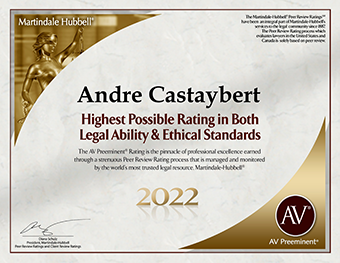Enforcement of Foreign Judgments in New York
September 28th, 2018
In New York the general policy is to facilitate the recognition and enforcement of foreign money and non-money judgments. Recognition is when a court converts a foreign judgment into a U.S. judgment which prevents re-litigation. Once recognized, a party can then invoke procedures for enforcement of the judgment under New York law. The law that governs money judgments is the Uniform-Foreign Country Money Judgments Recognition Act (the “Act”), whereas the non-money judgments are governed by New York common law.
For money judgments, the Act applies to any judgment of a foreign state granting or denying recovery of a sum of money. It does not cover judgments for taxes, fines, or other penalties; nor does it apply to support judgments in matrimonial or family cases. The Act has three requirements for recognition. First, it must be a final judgment. A judgment can be final even if it is subject to appeal. Second, it must be conclusive – meaning the judgment grants or denies recovery of a sum of money. Finally, the judgment must be enforceable where it was rendered. This means if there are any circumstances under the law in the country where the judgment was rendered that would make it unenforceable there, it cannot be enforced in New York. The most common of these is a statute of limitations in a foreign country that has expired for the recognition action in the U.S.
In addition to the three requirements, the Act provides two mandatory grounds on which a New York court must not recognize a foreign money judgment. First, is if the judgment was given under a system of law which does not provide procedures that comport with the New York standards of due process. An example of proper due process would be that the defendant was given notice of the proceedings and provided with adequate time to prepare his defense. Second, the foreign judgment must not be recognized if the foreign court did not have personal jurisdiction over the defendant – meaning the defendant must have had sufficient minimum contact with the jurisdiction in which the foreign court sits. The New York Court has discretion to refuse recognition when the claim on which the foreign judgment is based is contrary to New York public policy.
For non-money judgments, courts will generally recognize and enforce unless the foreign proceeding does not meet basic jurisdictional or due process requirements or if the foreign judgment violates fundamental rules of New York public policy.
In New York, a party can bring an action for recognition or enforcement before the New York state courts or before the US federal courts located in New York. The court must have a rational basis for asserting jurisdiction over the judgment debtor. Usually, if the funds to pay the judgment are located in New York, then that is sufficient to assert jurisdiction. Once a court is chosen, generally the party files a motion for summary judgment in lieu of complaint to begin the recognition process. New York courts will not review the merits of the suit, but only review for the relevant criteria under the Act to determine if the judgment can be recognized. Once a determination is made, an aggrieved party may file an appeal that decision, while the prevailing party can seek enforcement.
For a more detailed analysis, check out this article by Timothy G. Nelson and Jordan C. Wall of Skadden Arbs Slate Meagher & Flom LLP.
For more information about how Castaybert PLLC can assist you in enforcing a foreign judgment, click here.









